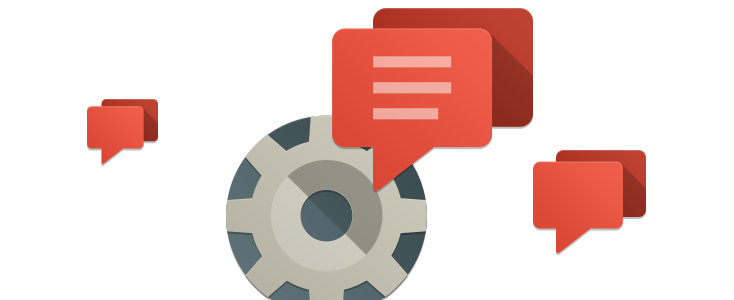Ever wondered what all of the plugins in a default Joomla install do? Ever wonder if they were all needed? Ever wonder which ones take longer to process?
Well I did and here is what I learned. We hope to create a best practices guide for core Joomla plugins.
To create this guides we installed Joomla 1.5.15 and took a look at the plugins installed and enabled by default.
Core Joomla Plugins are divided into 8 categories:
Authentication Plugins
This group of plugins allows for user to log into your Joomla site. Authentication methods range from the Joomla mysql database to a LDAP server to a 3rd party system like Gmail or OpenID.
- Joomla -- Use the Joomla Mysql database for authentication. Most common method.
- LDAP -- Uses a LDAP server for authentication. Helpful for those with LDAP servers.
- OpenID -- Uses the Open ID System to Authenticate Users
- Gmail -- Uses the Gmail database to authenticate users
Joomla Authentication is the only authentication plugin that is enabled by default.
OpenID and Gmail may be uninstalled. If you are not sure about the different login methods then go with the Joomla Mysql authentication.
Content Plugins
These plugins add functionality and change how certain elements on your pages display.
- Page Navigation -- Adds the previous and next buttons to the bottom of the pages.
- Rating -- allows user to vote and rate articles can be useful for some sites
- Email Cloaking -- turns all email addresses on a page to a javascript so that humans can read them but not page scrapers. Useful when you have to display email addresses but want to protect them from being spammed.
- Code Highlighter (GeSHi) -- Not 100% sure about this one.
- Load Module -- allows you to display modules in the content area. This is very helpful when you have more advanced design or functionality requirements. Modules Anywhere is a good alternative. Check out our Modules Anywhere Review.
- Pagebreak -- This allows for the inserting of page breaks.
All content plugins are enabled by default except the code highlighter. If you are not using the others then it is good to unpublish them. Not sure what performance gains are made but they will keep your code smaller.
Editor Plugins
These plugins are the WYSIWYG (What You See Is What You Get) editors.
- No Editor -- If you do not want an editor to be used select the.
- TinyMCE 2.0 -- This is the standard Editor for Joomla.
- XStandard Lite 2.0 -- Not sure about this editor have not used it before.
The only editor plugin unpublished by default is XStandard Lite 2.0. None these editor plugins can be uninstalled.
Consider JCE if you are looking for an editor with more features. It is very easy for beginners and advanced users and is well supported. If you use JCE consider unpublishing TinyMCE 2.0 and XStandard Lite 2.0, how ever some of your other extensions may rely on these editor to work.
Editor xtd Plugins
These plugins display buttons below the WYSIWYG editors.
- Image -- Allows you to easily insert an image into your article.
- PageBreak -- Easily insert a page break into your article.
- Read More -- Easily insert a 'read more' link into your article.
Do any of these plugins cause the front end of the site to slow down?
If you are using JCE and do not need this functionality can they be unpublished? uninstalled? Will there be any performance increase?
Maybe these questions could be asked at the JCE forum.
Search Plugins
These plugins allow Joomla search to index and display the different content areas of your site.
- Content -- Allows articles to be searched and indexed.
- Weblinks -- Allows weblinks to be searched and indexed.
- Contacts -- Allows contacts to be searched and indexed.
- Categories -- Allows categories to be searched and indexed.
- Sections -- Allows sections to be searched & indexed.
- News feeds -- Allows your imported newsfeeds to be searched & indexed.
All are enabled by default. If you want clean up your search result pages, unpublish the plugins for the content areas that are not important to your users or used on your site. Here is an alledia blog post about making Joomla search pages more useful.
System Plugins
These plugins assist with the operation of your site such as SEF URLs and caching.
- SEF -- Turns the standard Joomla URLs to Search Engine Friendly URLs. Good for both Humans and search engines.
- Debug -- When enabled allows you to see more technical information about your site.
- Legacy -- Allows Joomla 1.0 extensions to work.
- Cache -- Allows for the caching and speeding up of your site.
- Log -- Logs all of your Joomla events
- Remember Me -- shows the remember me box below the joomla login,
- Backlink -- Not sure about this one.
User Plugins
not really sure what this group of plugins are
- User - Joomla! -- not really sure about this one
XML-RPC Plugins
These plugins allow other systems to interact with Joomla such as the Blogger API.
- XML-RPC - Joomla -- not really sure about this one
- XML-RPC - Blogger API -- allows you to integrate your joomla site with the Blogger API
These plugins are unpublished by default and can not be uninstalled
Learn about the Joomla Plugin best practices to make you site faster.


